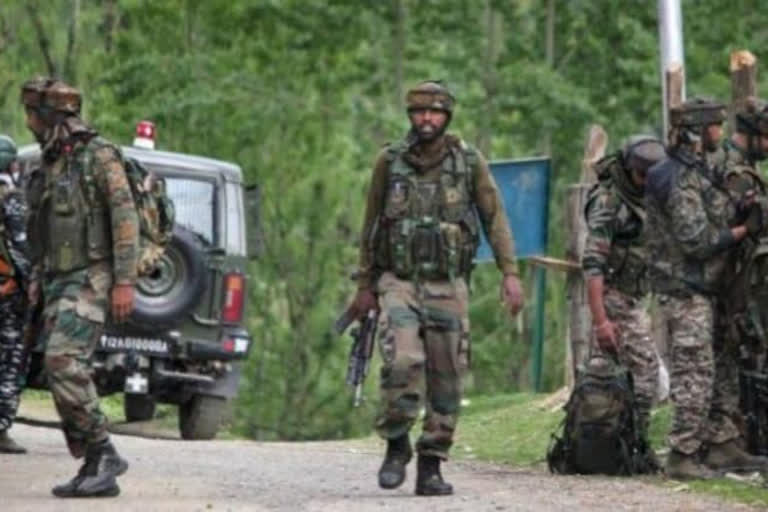New Delhi: As 2021 comes to an end, the future of Indo-China relations hangs in uncertainty. The situation is expected to crumble further as China's new border law titled the ‘Land Border Law of the People’s Republic of China' comes into effect on 1 January 2022.
The law, which China passed earlier in the year, aims to strengthen border control, gives immense power to People's Liberation Army (PLA) to build huge infrastructures in the bordering villages of countries that share a land border with China. This would add more complications for India’s ongoing tensions with it along the Line of Actual Control (LAC).
Adding to woes, China on Thursday ‘renamed’ 15 places including residential areas, mountains, rivers and a mountain pass situated in Arunachal Pradesh, which China claims as its own territory called ‘South Tibet’. New Delhi had denounced the claims several times by saying 'Arunachal Pradesh was, is and will remain an integral part of India.
In an exclusive interview with ETV Bharat, war veteran and defense expert Major General (Retired) Dr GD Bakshi, said, "China's new border law was in response to China's perceived notion of getting into a situation of Laicization of the LAC, which it think would would destabilise us and can get away. But India has responded firmly, first in Bhutan; then in Sikhim; and now in Ladakh to match with the Chinese tank for tank, gun for gun, soldier for a soldier."
Bakshi, who has had served the Indian Army in various combat missions in Kashmir, also dismissed Chinese hostilities as cosmetic gestures to put India under pressure. However, he said that in today's uncertain environment, the possibility of any kind of conflict cannot be ruled out.
When asked whether the possibility of peace is bleak as China is engaged in a direct confrontation along LAC, Major Bakshi replied, "They have this huge manpower problem. That is why they're trying to make up border villages, Artificial Intelligence and Robots, etc.. All these jokes are fine but in mountains, robots do not work."
He added, "China may be the most populous nation in the world, but it is a ageing population. But, ours is the youngest population in the world, so China cannot match up in the strength of the army any longer."
Defence minister appreciated
While the falling relations between the two bordering countries continue to deteriorate, one critical aspect of this is the lack of infrastructure in the Himalayan border which in a way kept New Delhi's interests and sovereignty under Chinese radar.
Major Bakshi, while appreciating the efforts of Defence Minister Rajnath Singh in the Himalayas, said, "He (Defense Minister) was spot on. Lack of infrastructure in the Himalayan border has always been a big problem." On Tuesday, Defence Minister Rajnath Singh dedicated to the nation 24 new bridges and three new roads built by the Border Roads Organisation in areas of Jammu & Kashmir, Ladakh, Arunachal Pradesh, Himachal Pradesh.
Explaining the hostile activities of China that is adding more tensions to the Indo-China relations, Major Bakshi said, "These are just cosmetic gestures by China to exhibit its ownership and enforce its claims. They use these claims as part of Salami slicing tactics to own a large track. This is exactly what it had done in Aksai Chin. And then it ended up swallowing up 30,000 km² of key strategic estate through which it built a road which links Tibet to XINJIANG."
While talking about 1962 setback, the war veteran said, "Since 1962, there was a defeatist mindset in the Indian security establishment which said, we will not build roads because the Chinese use them to advance. Nonsense! The Israelis used to say that road that leads from Damascus to Tel Aviv also leaves from Tel Aviv to Damascus. So roads have a dual purpose. We can also use them to strike out across."
He added that the last time China went on a military conflict was the Vietnam war where it was defeated.



